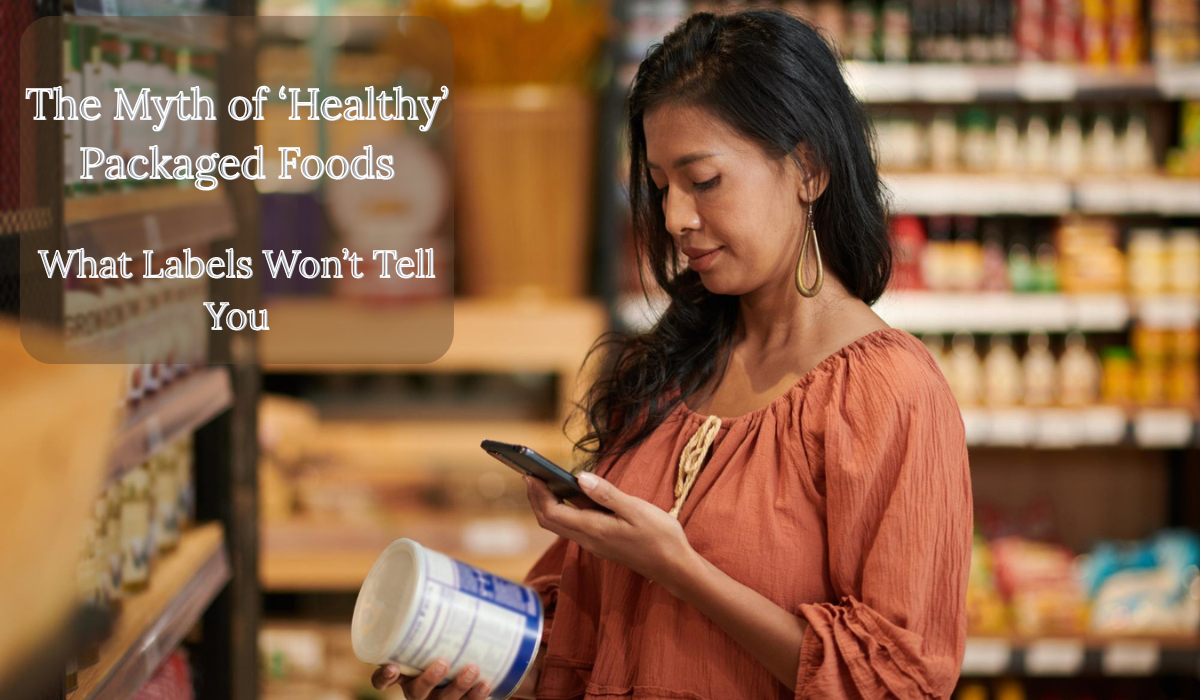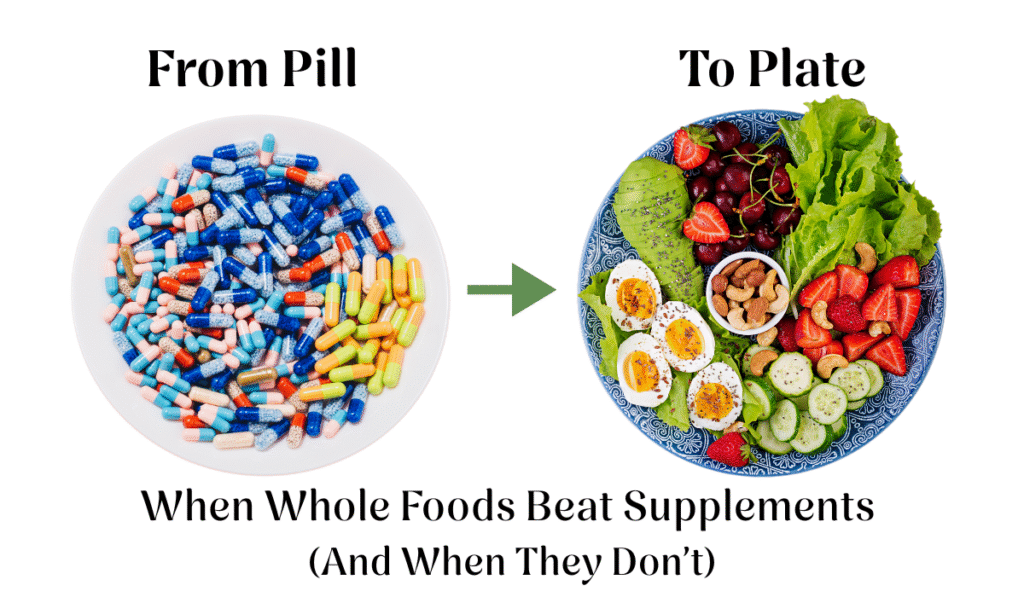You walk into a supermarket and pick up a granola bar that claims to be “natural,” “high protein,” and “no added sugar.” It sounds like a smart choice. But a few days later, you feel bloated, tired, or craving more food shortly after eating it.
This is not just bad luck. This is smart marketing covering poor nutrition.
Packaged foods today wear a “healthy” label — but often, they are just processed, preserved, and repackaged versions of junk food with better branding.
The Most Common Marketing Traps
Let’s look at the most misleading phrases found on labels:
-
“No added sugar” – Often contains maltodextrin, fructose, sucralose, or stevia extracts, which can impact blood sugar, gut bacteria, or trigger cravings.
-
“High protein” – May be made with isolated proteins (like soy protein isolate or caseinate), not whole foods. These lack fiber and cause digestive distress.
-
“Baked, not fried” – Sounds healthy but may still use refined seed oils and emulsifiers.
-
“Multigrain” or “Whole grain” – May include just 5-10% whole grains with the rest being refined maida or semolina.
Ingredients That Sound Safe — But Aren’t
Here are real ingredients to watch out for on so-called healthy snacks like “protein bars,” “fitness cookies,” “diet namkeen,” and “nutritious drinks”:
Common Additives to Avoid:
| Ingredient | Why It’s Problematic |
|---|---|
| Maltodextrin | Highly processed, spikes blood sugar faster than sugar, and feeds bad gut bacteria. |
| Glucose syrup / Corn syrup | Refined sugars in liquid form, heavily processed, harmful for liver and metabolism. |
| Sucralose / Aspartame / Acesulfame K | Artificial sweeteners linked to gut imbalance and headaches. |
| Hydrogenated / Refined Vegetable Oils (sunflower, canola, soybean) | High in omega-6, inflammatory, and used to increase shelf life. |
| Emulsifiers (INS 322, 471, 433) | Linked to gut lining irritation and altered microbiome. |
| Flavor enhancers (INS 635, 631) | Trigger addictive eating patterns and may cause migraines. |
| Synthetic vitamins (like ascorbic acid, B12 cyanocobalamin) | Used to make the food look “fortified,” but less bioavailable than natural sources. |
| Soy protein isolate / Whey concentrate | Often heavily processed, low in fiber, may irritate sensitive digestion. |
Real Examples of “Healthy” Packaged Foods
Let’s take a few common “healthy” products and examine what’s wrong:
1. Granola or Protein Bars
-
Marketed as: “Natural, no refined sugar”
-
Actually contains: Fructose syrup, maltodextrin, soy protein isolate, natural flavors, preservatives
2. Diet Namkeen or Roasted Snacks
-
Marketed as: “Baked, high-protein, cholesterol-free”
-
Actually contains: Refined oils, anti-caking agents, MSG-like flavor enhancers, excess sodium
3. Meal Replacement Shakes / Protein Powders
-
Marketed as: “Weight-loss friendly, low-calorie”
-
Actually contains: Artificial sweeteners, thickeners (xanthan gum), synthetic vitamins, caseinate
4. Flavored Yoghurts or “Healthy” Dahi Cups
-
Marketed as: “High calcium, fruit-flavored”
-
Actually contains: Sugar syrups, starches, artificial flavoring
5. Packaged Millet or Oats Cookies
-
Marketed as: “Gluten-free, multigrain”
-
Actually contains: Palm oil, sugar, refined flour as base, with millet in small percentages
Section 4: So What Can You Do Instead?
Here’s how to shop smart and protect yourself from health-washed food:
1. Read the ingredient list — not just the front label
-
Look for short lists with recognizable words.
Example: “Roasted chana, pink salt, turmeric” = good
“Roasted chana, maltodextrin, INS 635, soybean oil” = no.
2. Avoid products with more than 5-6 ingredients
The longer the list, the more processed it likely is.
3. Watch out for sugar in disguise
Sugar has over 60 names. Avoid products with:
-
Invert syrup, brown rice syrup, glucose solids, fructose, malt extract.
4. Avoid excessive fortification
If a product contains a laundry list of added vitamins/minerals, ask:
Why does real food need so much artificial nutrition?
5. Choose food over food products
Instead of:
-
Protein bars → Have roasted peanuts or boiled chickpeas
-
Packaged smoothies → Blend fresh fruit with dahi at home
-
Flavored oats → Make plain oats and top with banana and cinnamon
Why This Matters (Beyond Calories)
This isn’t about demonizing packaged food. It’s about protecting your energy, hormones, and mental clarity.
Many of these hidden ingredients:
-
Spike inflammation
-
Confuse your gut microbiome
-
Worsen PCOS, thyroid, or insulin resistance
-
Trigger cravings and emotional eating cycles
The cost isn’t always on the label. It’s in how you feel later.
Final Thoughts: Reclaiming Trust in Food
The healthiest food rarely comes in a package. It comes in your kitchen, your culture, your grandmother’s recipes.
Instead of chasing trends, choose food that’s:
-
Simple
-
Seasonal
-
Locally available
-
Easy to digest



